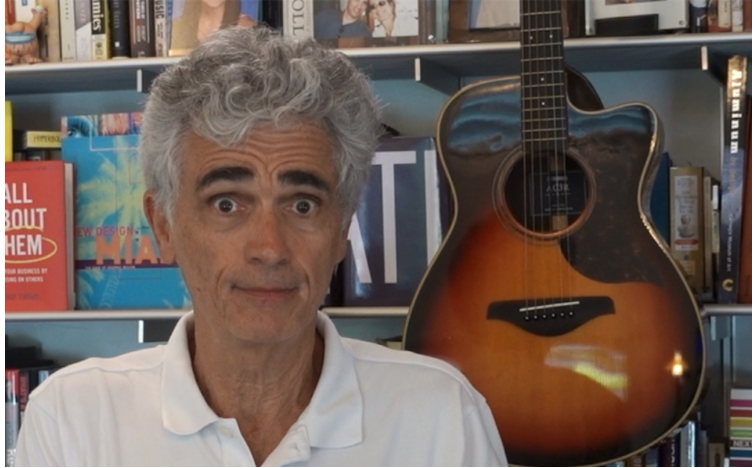
Why Experts Fail to Apply Their Own Advice
Bruce Turkel
“Bruce speaks with confidence and competence, triggering the audience to build solutions.” Grey Goose Vodka
I had just stepped off the stage after completing my opening keynote. After enjoying the applause and fishing the wireless mic wires out from under my shirt, I’m sitting in the audience listening to the next presenter.
She’s a business speaker who talks about success . She has good stage presence and admirable speaking skills, and her audience is genuinely interested in her subject. Better, she’s telling a story that clearly illustrates the audience’s concerns and lays out a proven, actionable solution while positioning the speaker as the expert to solve the problem.
The speaker is doing everything correctly.
But here’s the rub: I know she and her business are suffering from precisely the same problem she’s purporting to solve for the audience. So, the question running through my mind is the same thing that’s probably bugging you now — why can’t she use her tools , tips, and techniques to fix her own situation?
As a marketing guy fascinated by human behavior, I wanted to understand experts and self-awareness, so I did some research.
The Paradox of Professional Experts and Self-Awareness
It turns out that it’s common for professionals to excel in their fields yet struggle with self-awareness and managing their own problems. As I learned, this often stems from the complex nature of self-perception, personal bias, and the human tendency to focus on external challenges rather than internal ones.
Several case studies illustrate this dynamic, shedding light on how expertise in one area doesn’t always equate to personal insight.
Common Adages That Explain the Problem
Lots of popular adages explain this:
领英推荐
Case Studies: The Disconnect Between Knowledge and Application
Therapists and Counselors: Helping Others But Not Themselves
For example, many therapists and counselors are adept at guiding their clients through psychological challenges but can face difficulties applying the same strategies to their own lives.
A study published in the?Journal of Clinical Psychology revealed that therapists often struggle with burnout and stress management despite their professional knowledge. This paradox is partly because therapists, like anyone else, can become emotionally overwhelmed by their circumstances and may not always have the time or inclination to practice what they preach.
Physicians: Medical Experts Who Neglect Their Own Health
This is also evident in other areas of healthcare. Physicians are experts in diagnosing and treating medical conditions but can sometimes fail to apply the same measures to their health. JAMA ( The Journal of the American Medical Association) ?found that due to busy schedules, denial, or the belief that they can manage their health issues themselves, physicians are often less likely to seek medical help than their patients.
Why Personal Self-Management Is So Difficult for Experts
These case studies underscore the distinction between professional expertise and personal self-management. The skills and knowledge that make professionals effective in their roles don’t always extend to personal self-awareness or resolving individual issues. Hence, the fundamental human challenge is not being able to internalize one’s expertise despite having a deep understanding of how to do it for others.
Understanding the Human Biases Behind the Problem
Ultimately, the disconnect between what we know and how we apply it to ourselves is a universal challenge. It’s not a matter of lacking the knowledge or skills—it’s about the difficulty of turning that lens inward. Whether you’re a speaker, therapist, physician, or any other professional, the ability to solve others’ problems doesn’t always mean you can solve your own.
How Experts Can Overcome the Self-Management Challenge
Recognizing this gap is the first step toward bridging it, and perhaps the most valuable lesson we can learn is to treat ourselves with the same care and attention we give to those we help.
Technology Futurist Keynote Speaker, Business Strategist and Disruptive Innovation Expert
1 个月It's always interesting to me how professionals find it hard to use the same advice and tools they give others because they’re too close to their own problems and may not see things clearly.
Accelerating Your LinkedIn? & Networking Learning Curve ? Exactly What to Say? Certified Guide ? Frequent LinkedIn Beta-Tester ? You Can't Automate Relationships?
1 个月Very insightful Bruce! It certainly is easier to help others because you aren’t emotionally attached in the same way. I sudiect the situation you describe leads to imposter syndrome.
Thank you for sharing this insightful post, Bruce. I can recall a "home economics" teacher at school. When I visited she was clearly a hoarder. A mechanic was amazing at what he does but the whole family always had cars breaking down. So many examples...it's a fascinating exploration of the dichotomy between professional expertise and personal application. The examples you provided really hit home, especially the notion that even those who excel in helping others can struggle with their own challenges. It’s a reminder that self-awareness and self-care are ongoing processes that require just as much attention and effort as the work we do for others. Recognizing this gap is indeed the first step toward bridging it, and your post serves as an important reminder for all professionals to turn that lens inward and practice what we preach.
Change Leadership Speaker and Coach
1 个月Perhaps, Bruce Turkel, articulating how to solve a problem one is facing is psychologically similar to actually addressing it. I know a lot of people (speakers included) who feel successful while spending money on “future promise.”
President @ Fripp Virtual Training | Presentation skills expert
1 个月Bruce Turkel Are you attempting to shame all your NSA pals!! Ha ha <<It turns out that it’s common for professionals to excel in their fields yet struggle with self-awareness and managing their own problems.?>>>